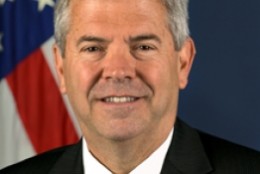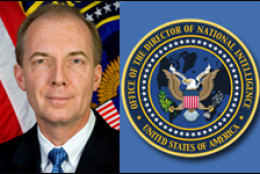Cloud computing
Although as a general matter the Defense Department has been slow to embrace commercial cloud computing, the Navy has implemented two new practices it hopes will speed things up. The Navy is the first military service…
March 23, 2016-
DISA asks industry for help in defining the requirements for next version of MilCloud, including how to set up utility-based pricing
February 24, 2016 -
Better cost data will help agency CIOs make more informed decisions about moving to newer, more cost effective IT solutions, said Richard McKinney, the Transportation Department's chief information officer.
February 03, 2016 -
The Pentagon has already signaled its intent to move its massive enterprise email service to a privately-operated, commercially-based cloud environment. This week, DoD officially kicked off the planning process for a procurement that will affect more than one and a half million users. Federal News Radio's Jared Serbu joins the Federal Drive with Tom Temin with more.
September 18, 2015 -
Shadow IT, the stuff that's on a network that leadership doesn't know is on the network, plagues agencies across government. Shawn Kingsberry, former chief information officer at the Recovery Accountability and Transparency Board and director of cloud solutions at Engility Inc., tells In Depth with Francis Rose the shadow IT concept is starting to seep into the bring-your-own-device arena.
September 08, 2015 -
The Defense Information Systems Agency is taking an interesting approach as it transitions from its former role as the sole broker for the DoD commercial cloud market and into something more like a cloud sherpa for the rest of the military.
August 24, 2015 -
Aaron Cornfeld, group vice president, Pre-sales Engineering, Public Sector, Healthcare and Higher Education at Oracle, joins host John Gilroy to discuss products the company is developing that could be of interest to IT professionals in the federal government. June 23, 2015
June 23, 2015 -
Commentary: Giles Kesteloot, director of the Blackstone Technology Group, argues that in a complex multi-contract, multi-customer and multi-vendor cloud ecosystem someone has to oversee execution and manage expectations.
June 23, 2015 -
Setting the record straight on what exactly Stan Kaczmarczyk said on June 2 about the cloud cybersecurity effort known as Federal Risk Authorization and Management Program (FedRAMP). There have been several blogs and some articles that either didn\'t understand or misconstrued his comments, which has set some in the federal community off in the wrong direction.
June 15, 2015 -
The General Services Administration tells agencies they shouldn\'t rule out contractors who don\'t have Federal Risk and Authorization Management program authorizations yet. The program is only a few years old. And GSA says agencies who require FedRAMP compliance as a condition for contractors to bid on work, are limiting competition. Katie Lewin is the former program manager for cloud computing at the General Services Administration, and now an independent consultant. She tells In Depth with Francis Rose what government\'s role is in vendors being able to adopt FedRAMP.
June 11, 2015 -
Acting Agriculture CIO Joyce Hunter is taking aim at consolidating 15 assorted networks the agency uses. At Transportation, CIO Richard McKinney is creating shared services for commodity IT to get the bureau CIOs out of the IT services business.
April 03, 2015 -
Federal agencies have adopted mobile computing with the same fervor as the private sector. Yet securing smartphones and tablets is still a challenge for most agencies. Federal security experts are still trying to find the right balance between mobile access and security of data and applications. The Defense Department may have the answer for many of these challenges. Federal News Radio's executive editor Jason Miller joined Tom Temin on the Federal Drive with the latest on how DoD and others are taking on the quest for mobility and security.
April 03, 2015 -
The Homeland Security Department and the FedRAMP program management office released a draft crosswalk between the cloud cybersecurity program and the Trusted Internet Connection (TIC) initiative. The goal is to make it easier for federal workers to access their network and apps securely through mobile devices.
April 02, 2015 -
Al Tarasiuk, the intelligence community's chief information officer, said the Intelligence Community IT Enterprise (ICITE) program is less about technology and more about getting widespread buy-in from the analysts and collectors.
March 26, 2015 -
Tony Scott, the new federal chief information officer, said in his first public speech his priorities are to ensure existing administration technology efforts are successful. But Scott offered some insights into tweaks and focus areas.
March 25, 2015










